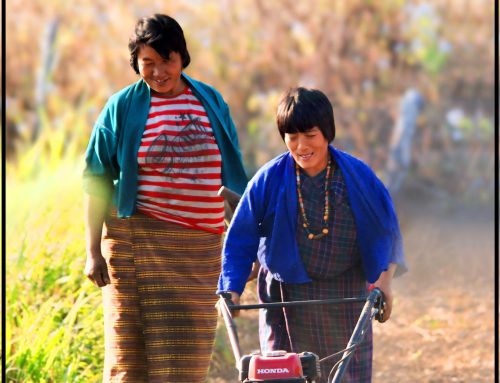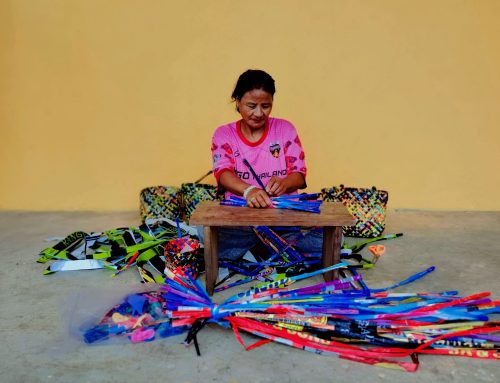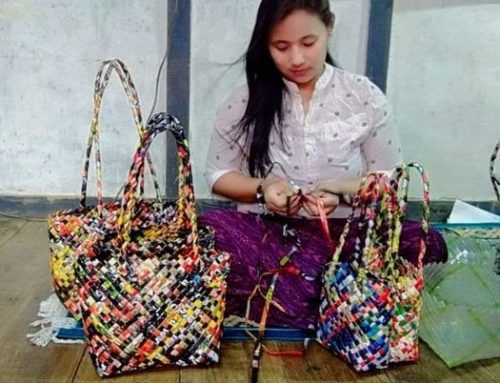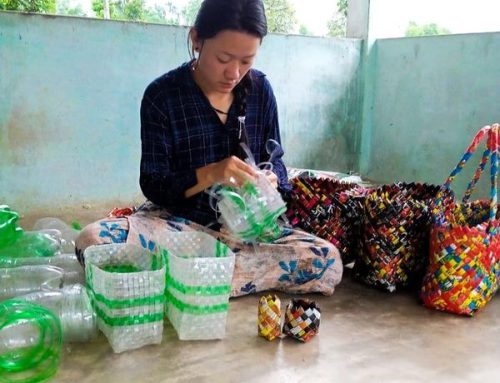SJI exhibited seeds of traditional crops (cereals, legumes & vegetables) and baskets made from PET bottles and bags & purse made from plastic wrappers at the closing of the 1st ever Camp RAVEN (January 17, 2017), Dewathang, in which over 231 student participated. Honorable Minister for Works & Human Settlement graced the occasion.
Lead farmer Mr. Gurung and Mrs. Lungten Zangmo member of Dewathang women’s group participated in the exhibition.

…among the nine essential crops (drunagu)..also from Gurung’s stock. A study reveals that Bhutan has lost 25% of her indigenous crop varieties in the last 20 years or so. This is also true for Samdrup Jongkhar Dzongkhag (Lobzang’s baccalaureate thesis).

Lead farmer Mr. Gurung, Mrs. Lungten Zangmo member of Dewathang women’s group & Cheku, SJI zero waste coordinator getting ready … also present is Karma Phuntsho of Clean Bhutan. Zero waste is not about waste but about wholesome integrated development

HE Zhapto Lyonpo reminiscing her recent experience of making “nimki” from amaranth in her village.

The youthful crowd seems to be listening – about farming & indigenous crops- even after half a day of scintillating rap music and dance.

Gurung’s own traditional crops’ seed stock; he has 60 varieties of beans. Who after Gurung?

Amaranth locally known as “lasomo”, rich in nutrition. Not many farmers grow it now.

Great social capital that has to be skilfully tapped

Meditation cushion, school and hand bags made from waste by Dewathang women’s craft group

Gurung inspiring the youth to pursue his profession. He and his wife are proud farmers. They are self sufficient in food and nutrition. Gurung proudly shares that salt is the only thing that they buy (may be also some juice). Their farm is rich in diversity; it is a model farm. SJI plans to promote it.





